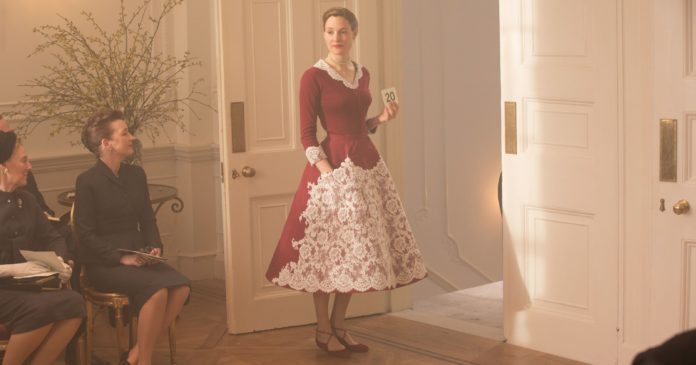Title: Phantom Thread
Director: Paul Thomas Anderson
Released: 2018
Film Review: Phantom Thread
Paul Thomas Anderson at his most emotional.
Within minutes of witnessing Daniel Day-Lewis’ acting in the Phantom Thread you know you’re in for a treat. This is the real deal. He is one of the few actors who could get away with such a theatrical performance of a character on film.
While Paul Thomas Anderson’s plot is one of his easiest to follow, this is certainly not a simple period drama romance. Scratch the surface and you will find interwoven threads of deep Freudian personalities and inflated egos: phantom threads sewing the most impressive, garments — items of clothing that are meant to disguise one’s own personality.
In allegorical terms, Phantom Thread is a deep Gothic psychoanalysis of three strong-minded individuals and their need to control each other and their own self; the weight of compromises; the selfish confinement of one’s creativity; finally, the subconscious mechanisms of manipulation. More so, this is what falling in love—a notion that is at the core of this film—is about. Love both as an illness and a transfigurative device.
“Marriage would make me deceitful and I don’t ever want that.” – Reynolds Woodcock
Of course, one could go on talking about the costumes, the period settings, the Victorian atmosphere. But the heart of the film is elsewhere: in the dynamics of the three main characters, underlined by their immaculate performances.
And of course, Paul Thomas Anderson is at the forefront with his masterful direction. Having left behind the heavy academic style of The Master and the overly sensual cinematography of Inherent Vice (both of which had been counteractive to his artistic expression if you ask me) he returns here to the inner voices and the charismatic grace of some of his earlier films (There Will Be Blood arguably remains his supreme masterpiece).
Yes, here is his trademark attention to detail all over the place, the anti-conformist shooting angles, and the exotic soundtrack by Jonny Greenwood which plays almost non-stop: this time more lush than exotic but still spellbinding, with 50s-influenced piano tunes (Glenn Gould being one of the references, the composer tells us) and velvety strings. But at the end of the day, the film’s strength lies in its emotional punch and in this film one could argue that Paul Thomas Anderson is at his most affectionate since Punch Drunk Love.

A complex feature then which, despite its ostensibly simple plot, requires repeated viewings. What is left after the film’s ending is not a vivid impression of its narrative arc but the memory of a specific gesture, a capricious smile, an intense gaze.
Not much can be really written about Phantom Thread to describe it, hence the elliptical review. And not much can be said, unlike its central theme, love. Here falling in love is revealed in its truest sense: the thing one needs to avoid in order to be happy. Here falling in love is revealed in its truest sense: The thing one needs to succumb to in order to be happy.

Featured image: Laurie Sparham/Focus Pictures






